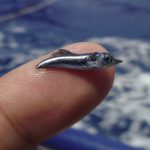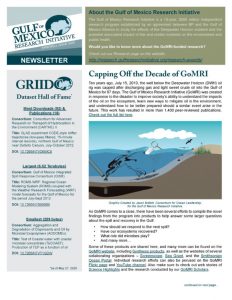The Gulf of Mexico Research Initiative (GoMRI) was a ten-year, $500 million research program to investigate the impacts of oil, dispersed oil, and dispersants on the ecosystems of the Gulf of Mexico following the Deepwater Horizon oil spill. GoMRI funded scientists sought to improve the fundamental understanding of the dynamics of such events, their environmental stressors, and the implications to public health, with the goal of improving society’s ability to understand, respond to, and mitigate the impacts of petroleum pollution and related stressors on marine and coastal ecosystems. The GoMRI ran from 2010 to 2020, involved nearly 4,500 researchers, and resulted in more than 1,700 scientific publications. We invite you to explore the diverse discoveries and informational resources produced during our scientific journey!
GoMRI Synthesis & Legacy
GoMRI’s Synthesis effort documented and scientific achievements and advances from 2010-2020, to create new understanding and improved practices. This synthesis effort was driven by the best available science, and included knowledge exchange with the user community, including oil spill responders, NGOs, restoration efforts, and other stakeholders, and explored the transferability of knowledge to other geographic locations and scenarios.
Through a series of workshops and subsequent publications, special issues, and presentations, GoMRI sought to answer five key questions, such as What have we learned? and What major gaps in knowledge still exist?, across each of eight identified Core Areas. This effort culminated in a GoMRI Synthesis Symposium – watch video of the event here.
The impact of the 10-year GoMRI effort is far reaching and has enhanced the capability and capacity to respond to any future incidents. Central to the GoMRI Legacy are:
- Data collection, archiving and analysis
- Education
- Community and capacity building
- Scientific understanding
News Archive
Photos & Video
Newsletter Archive


